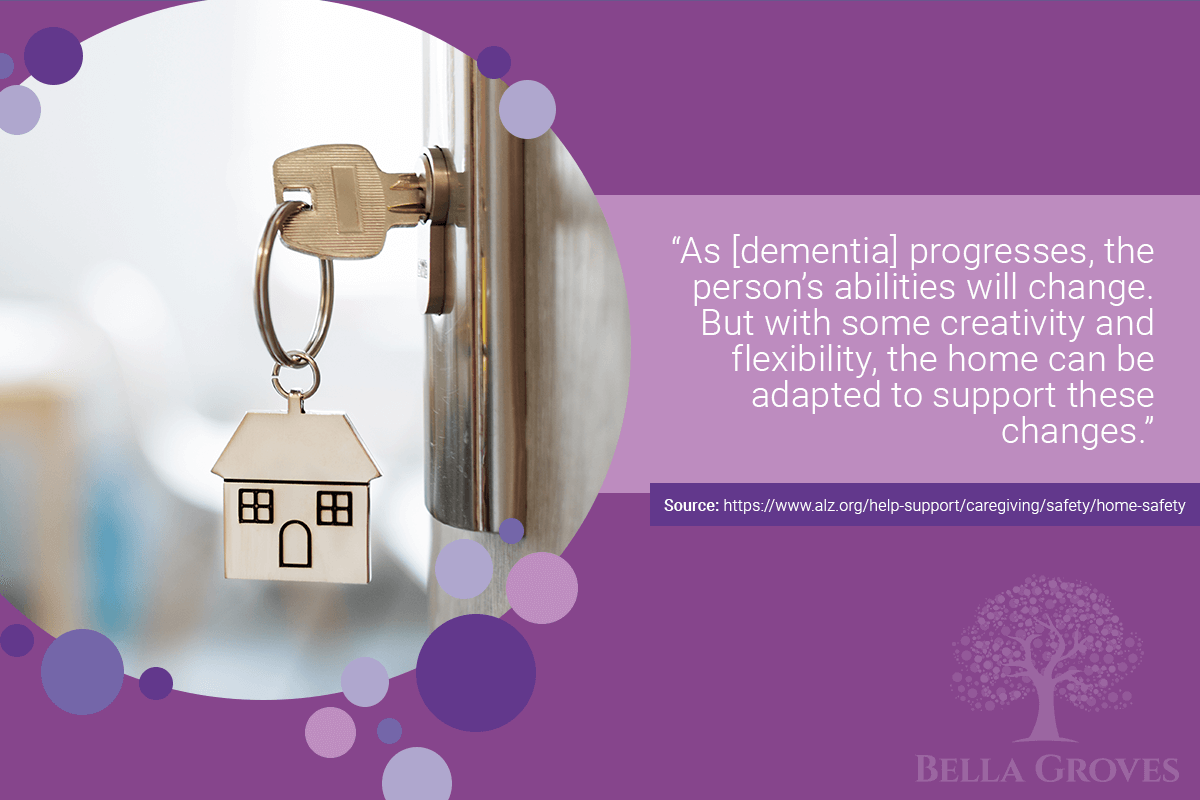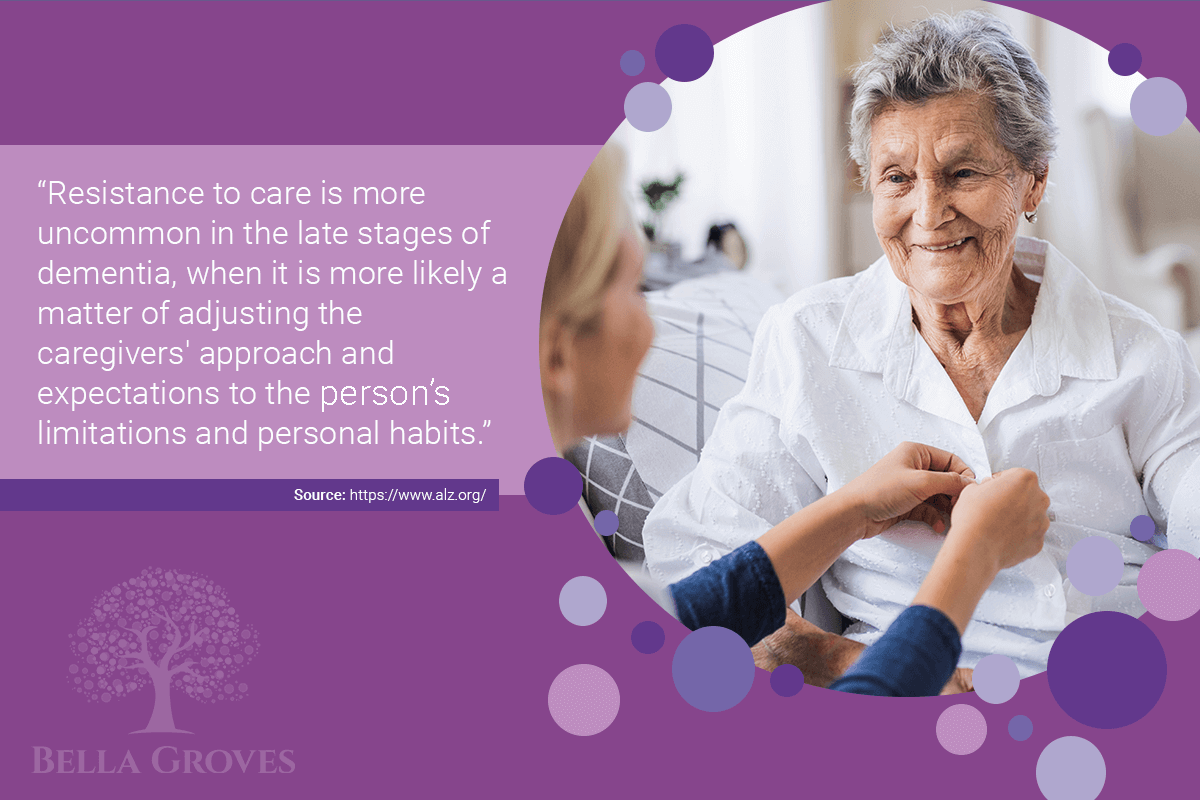
How to Make Your Home More Dementia-Friendly
The layout of a home can make all the difference for a person living with dementia. In addition, the symptoms a person can experience during their dementia journey, such as memory loss, confusion, and problem-solving, can create obstacles and challenges, even if they are still living in the house they’ve resided in for years.
Making adjustments and changes to a home can increase safety and provide comfort, creating the opportunity for longer independence in your loved one’s life.
At Bella Groves, we know that dementia can alter a person’s ability to navigate their surroundings, even their own home. So how do you make your home more dementia-friendly? While you cannot change the entire layout of a house overnight, there are simple – yet beneficial – adjustments you can make.
Improve or Increase Lighting
In general, older adults can benefit from brighter, more clear lighting in their homes. Not only can this alleviate any vision problems that occur naturally with age, but it can reduce the risk of falls and accidents. For those living with dementia, effective lighting can help them see where they want to go and identify spaces, rooms, and signs. It also helps them see other people’s faces and body language more clearly, making easier to enjoy tasks and recreational activities.
Implement as much natural lighting as possible throughout the day. For example, keep curtains are open, ensure windows are not blocked by blinds or unnecessary accessories, and all hedges and trees near windows are maintained to avoid blocking sunlight.
In addition, natural light can help a person living with dementia’s sleep habits. “Researchers found that exposure to the bright daytime light significantly improved sleep quality … [and participants] showed fewer symptoms of depression and agitation (alzinfo.org).”
When it comes to artificial lighting, ensure there’s plenty of light near any staircases or steps and in bathrooms and bedrooms. Light switches should be easy to reach and use, but if your loved one struggles with accessing light switches or pulls, automatic light sensors can easily combat this.
Reduce Unnecessary Noise
While hearing loss is a natural part of aging, people living with dementia experience hearing changes differently. Rather than a decline in volume, they find it challenging to process certain sounds to accurately know what they’re hearing. This isn’t just a cause for confusion, but a cause for fear, as it can be unnerving to hear sounds you don’t fully comprehend.
Carpets, cushions, and curtains absorb lots of background noise in the home, and if you have laminate flooring, even walking across the room can create excessive noise. Ensuring that most flooring surfaces are covered with carpets or rugs is an easy way to reduce background noises.
Be sure to keep televisions, radios, or other electronic devices that create noise turned off when not in use, and when they are turned on, make sure the volume is at a comfortable level. In addition, be sure to communicate and provide reassurance about tasks or activities that may create noise, such as running the washing machine or someone mowing the lawn.
Use Contrast Colors
The human perception of color depends on the pigment of objects and light. When a person is living with dementia, they experience a reduction in:
- Contrast perception or the ability to distinguish subtle changes in environments
- The vividness of colors, as colors begin to appear more muted
- Ability to tell the difference between blue, green, and purple colors
Using color contrasts makes things stand out for a person living with dementia, creating more obvious signs in their perception that create more clarity when navigating and understanding their environment. For example, using a red placemat under a white plate can avoid confusion while eating meals. In addition, floors, rugs, and walls should contrast clearly so that the walls and floors can be easily identified.
These are just some small ways you can make a home more dementia-friendly. Bella Groves is dedicated to providing dementia education that helps care partners and family members provide better care and create more moments of unconditional joy.
If you are concerned about the safety of your parent or family member due to their living environment, a memory care community can offer a safe, secure, and purposefully designed setting for them to thrive.
Our Bulverde memory care facility is a place you have to feel to believe, so we invite you to stop by and take a tour. You’ll know the difference right away.


